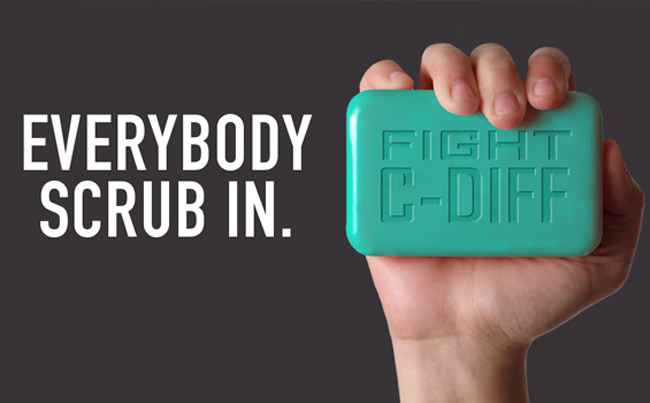
Clostridium difficile or C. diff is one of the most common hospital-acquired infections and one of the fastest growing superbugs, making it hard to fight with traditional antibiotics. Even when it’s treated, one in five patients ends up getting it again. But doctors at Loyola University School of Medicine have discovered a way to stop it from coming back and they’re using C. diff to fight C. diff.
Whatever path she takes, Cheryl O‘Riordan doesn’t let her health problems lead the way.
She survived colon cancer, thyroid cancer and is currently battling stage-four Non-Hodgkin’s lymphoma. But it was what she caught during chemo that put an end to her active lifestyle.
“Diarrhea that didn’t stop. And it was extremely painful. It felt like the lining of my colon was being ripped out,” explained O‘Riordan.
Every year, half a million people, mostly in hospitals and nursing homes, get C. diff. Roughly 29,000 die. Ironically, the cure is also the cause: antibiotics.
Dale Gerding, M.D., a professor of medicine at Loyola University’s Stritch School of Medicine in Chicago told Ivanhoe, “Antibiotics disrupt your normal microbiota and when they do that they enable you to be susceptible to C. diff.”
Even after treatment, C. diff comes back in 20 percent of patients. O’Riordan had it six times in less than a year. Dr. Gerding has patented a novel treatment to prevent recurrence by giving patients a non-toxic strain of C. diff.
“Instead of replacing the microbiota, which is what a fecal transplant does, all this does is replace the C. Diff,” explained Dr. Gerding
Stuart Johnson, M.D., an infectious diseases physician and professor of medicine at Loyola University’s Stritch School of Medicine said, “You can think of it as a probiotic, we like to think of it as a bio-therapeutic.”
They believe a non-toxic strain of C. diff could be the answer to protecting hundreds of thousands of people against the fastest growing superbug.
“I don’t want to go through this again, ever. Ever! Anything even remotely like that,” said O’Riordan.
Dr. Gerding said the non-toxic strain of C. diff doesn’t have any serious side effects, and it stays in the body for up to five months, which is why it cut the recurrence rate to 2% in studies. Dr. Gerding is currently looking for a company to develop the treatment. It would be given in pill or liquid form.